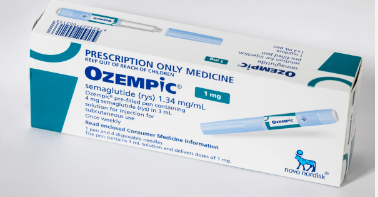The CEO of Novo Nordisk gave a statement before to testifying before a Senate committee next month over the cost of diabetes and weight-loss medications in the United States.
The CEO of Novo Nordisk justified the expensive price of Ozempic and Wegovy in the United States, claiming that the popular medications are eventually saving the government money on expenses associated with obesity.
“When you consider obesity alone, it’s a disease that costs Americans over $400 billion annually,” Lars Fruergaard Jørgensen stated during an appearance on “NBC Nightly News.” “And we are really offering products that are truly assisting in reducing that financial burden.”
Before the company’s “quiet period” ahead of its most recent earnings release, Jørgensen talked with NBC News and dismissed claims that the business is run like a drug cartel as “unfounded.”
Next month, Jørgensen is expected to provide testimony at a much awaited Senate committee hearing regarding the U.S. price of the drugmaker’s wildly successful diabetic and weight loss medications.

The chair of the Health, Education, Labor and Pensions Committee, Sen. Bernie Sanders, I-Vermont, told NBC News in June that he intends to question Jørgensen about Novo Nordisk’s pricing for Ozempic and Wegovy in the United States, which can be up to 10 to 15 times more than in other nations. According to a HELP Committee investigation, the cost of Wegovy is around $1,300 per month in the United States, compared to $186, $137, and $92 in Denmark, Germany, and the United Kingdom.
Sanders declared, “Novo Nordisk is obviously taking advantage of the American people.”
In the US, treating obesity-related conditions comes at a high expense.
In 2021, people with employer-based health insurance who were overweight or obese had an average of $12,588 in total annual health costs, more than twice as much as those who weren’t overweight or obese ($4,699 in 2021), according to a report released last year by KFF, a nonprofit organization that studies health policy issues. Individuals who are obese or overweight also have greater out-of-pocket expenses: on average, $1,487, as opposed to $698 for those who do not have those diseases.
However, at Ozempic’s and Wegovy’s current prices, Stacie Dusetzina, a health policy professor at Vanderbilt University in Nashville, Tennessee, stated that the savings that could be realized from lessening the burden of obesity-related care are insufficient to offset the significant increase in drug costs.
“It is unlikely that these drugs will reduce total spending, but for many people, they might be a very good option for improving their health,” stated Dusetzina. “To have a chance of producing overall savings in health care spending, the price of these drugs would need to come down significantly.”

An intricate healthcare system
At the hearing the next month, Jørgensen stated he “volunteered” to address the committee on Ozempic and Wegovy’s expenses. Three days after Sanders threatened to call a vote to subpoena Doug Langa, the president of Novo Nordisk, he announced that he would do so.
The “complexities of the U.S. health care system, which is a system we take part in but we cannot change,” is what Jørgensen claimed he will be discussing.
“That requires policy change,” he said, attributing the high out-of-pocket expenses that patients bear for their medications on PBMs and insurance companies.
PBMs collaborate with insurers to bargain with the pharmaceutical firms for rebates, or reduced pricing, so that the medications are covered by the insurance. However, experts warn that PBMs may be driving up drug costs as they become more powerful and have more control over which medications are reimbursed.
The Federal Trade Commission released a preliminary report in July detailing the ways in which PBMs are increasing patient prices.
Jørgensen acknowledged that some patients had inadequate insurance. Additionally, paying for your medications might be challenging if your insurance isn’t very good. And we endeavor to assist them through our patient support initiatives.
Jørgensen said that there should be a “discussion around what’s the value of these medicines” for patients in the United States.
While the medications can prevent and lessen a number of diseases linked to obesity, Cynthia Cox, a vice president at KFF and the director of its program on the Affordable Care Act, noted that they are still costly and that it is unclear how long patients will need to take them to maintain weight loss and better health.
“I don’t think there is enough long-term data to fully weigh the costs and benefits,” Cox said, adding that the widespread use of these medications for weight reduction is still relatively new.






